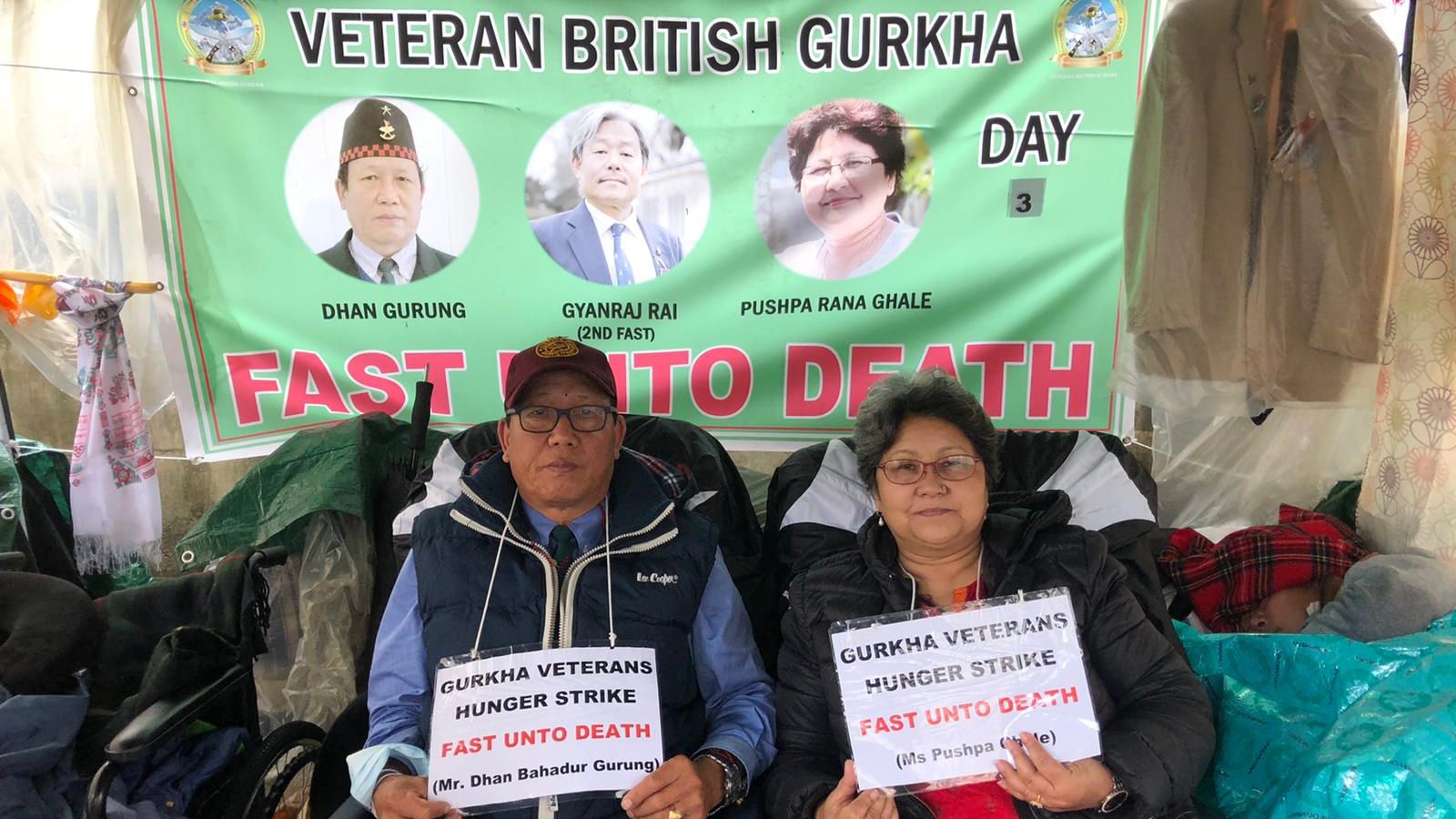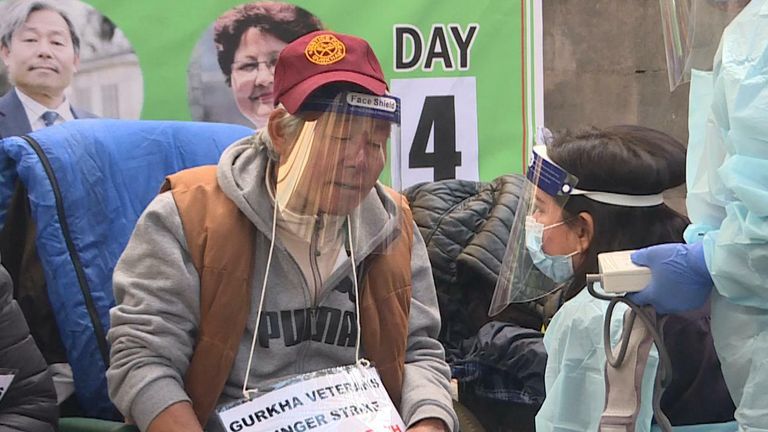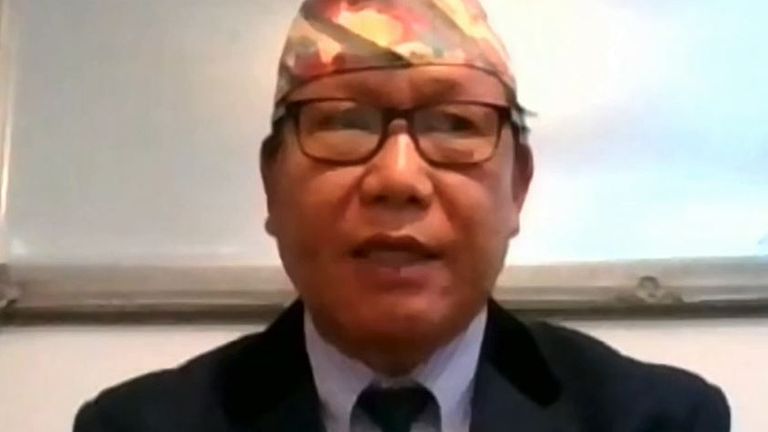The government needs to stop “dragging their heels” and address pension disparity for some Gurkha veterans, Labour has said.
Speaking to Kay Burley, shadow armed forces minister Stephen Morgan said it was “outrageous the inequality continues”.
A group of Gurkhas is staging a hunger strike opposite Downing Street, with their demonstration having now entered its fifth day.
Mr Morgan has written to Defence Secretary Ben Wallace and is urging him to “end this injustice”.
“I think it’s outrageous that there are people on the streets opposite Number 10 that are sleeping out there and not eating,” he told Sky News.
“We need to take action.”
In his letter to the defence secretary, Mr Morgan said: “The government has a basic responsibility to listen to the concerns of those who have fought for our country.
“I would urge you to meet with these veterans as I have in the past and will do so again this week.
“No veteran of the British Army should have to resort to a hunger strike to be heard.”
Gurkhas are Nepalese-born soldiers who have been recruited into the British army since 1815, fighting most recently in Iraq, Afghanistan and the former Yugoslavia.
The soldiers were first recruited by colonial rulers in India in the 19th century as a “martial race” known for their bravery.
In 2009, following a campaign supported by the actress Joanna Lumley, all veterans who retired before 1997 with at least four years of service were allowed to settle in the UK.
According to the Support Our Gurkhas website, the hunger strikers are campaigning for equal pensions for Gurkhas who retired before 1997 and are not eligible for a full UK Armed Forces pension.
Gurkhas who served from 1948 to 2007 were members of the Gurkha Pension Scheme (GPS).
This was closed in 2007 and all serving Gurkhas or those who retired after 1 July 1997 were given the option of transferring to the Armed Forces Pension Scheme (AFPS).
The date 1 July 1997 is when the Gurkhas became based in the UK and no longer classified as a Far East-based force.
Under the GPS, Gurkhas qualify for an immediate pension after 15 years of service, while for armed forces as a whole it is 22 years.
This can mean some Gurkhas will have been receiving pension payments for more than 20 years before many British soldiers of the same rank and length of service qualify for payments as part of the AFPS.
The GPS was based on the Indian Army model and was designed for Gurkhas retiring back to Nepal, where the cost of living is much lower than in the UK.
However, many of those Gurkhas will have taken up the right to settle in the UK following the change of policy under the Labour government in 2009.
Sky News contacted the Ministry of Defence to speak to a minister on air, but was told no one was available.
An MoD spokesperson told Sky News on Monday: “We greatly value the huge contribution Gurkhas make to the British Army and ensure they are supported with a generous pension and medical care during retirement in Nepal.
“We are committed to ensuring the Gurkha Pension Scheme is sustainable and fair alongside other UK public sector pensions.”
Pensions under the GPS were increased by between 10% and 34% in 2019, while £25m was invested in medical and healthcare facilities in Nepal for Gurkha veterans.
A public consultation on the latest changes to the scheme ended in March and the government is currently considering the size of the uplift that will be applied to the pensions.
The issue has been the subject of long-running campaigning over the years.
Responding to calls for reform in 2010, Labour defence minister Kevan Jones described the GPS as “good and fair” and said the MoD’s position on the matter was “legally and morally sound and beyond reproach”.
The exclusion of Gurkhas who served before 1 July 1997 has also been challenged in the courts, with the European Court of Human Rights ruling in 2016 that the move was “objectively and reasonably justified”.
But Rebecca Wilson, a barrister at Garden Court Chambers who has worked on cases relating to the Gurkhas, told Sky News there is “nothing stopping” the government from legislating to give those who retired before 1997 equal pension rights.
“It can be changed and it should be changed,” she told Kay Burley.


